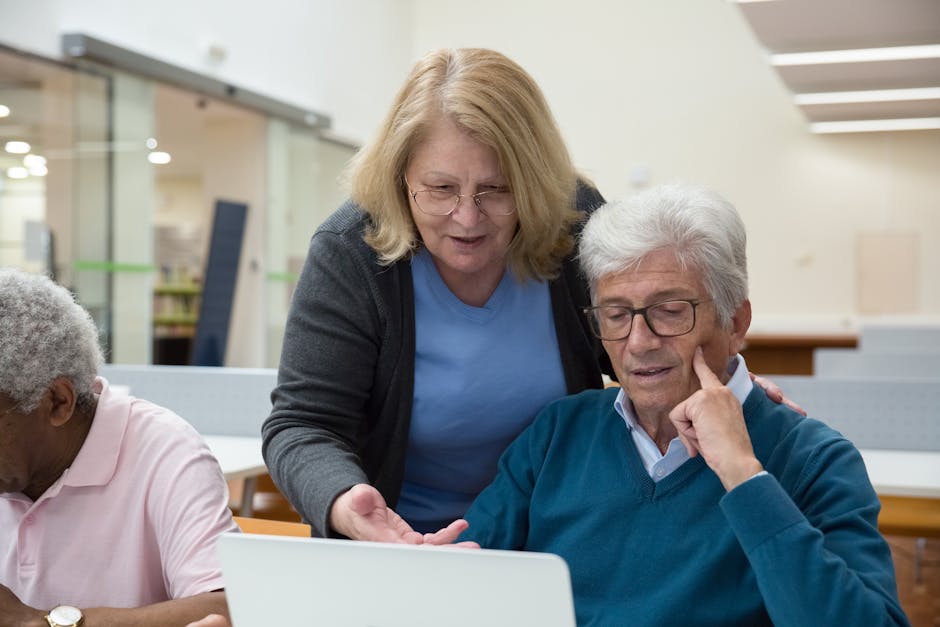The Importance of Continuous Learning
Did you know that 70% of people believe they learn best through experience? This statistic shows how vital learning is in our lives. Whether you want to advance your career, pick up a new hobby, or simply stay curious, continuous learning is essential. Let’s explore why it matters and how you can integrate it into your life.
What is Continuous Learning?

Continuous learning means never stopping your education. it’s about seeking knowledge beyond formal schooling. This can happen in many ways:
- Online courses
- Workshops and seminars
- Reading books and articles
- Networking with professionals
In a world that changes quickly, staying updated is crucial. Technologies evolve, industries shift, and new ideas emerge. Continuous learning keeps you relevant.
Why is Continuous Learning Important?

You might wonder, why should I keep learning? Here are some compelling reasons:
- Adaptability: Learning new skills helps you adapt to changes.
- Career Growth: Employers value employees who seek self-improvement.
- Personal Satisfaction: Learning brings a sense of accomplishment.
- Social Connections: Learning with others builds relationships.
Each of these benefits can significantly impact your life. Lets break them down further.
How Does Continuous Learning Boost Adaptability?

Life is unpredictable. New technologies or market trends can change your job overnight. By engaging in continuous learning, you prepare yourself for these shifts. For example, if your field suddenly embraces artificial intelligence, learning about it can make you an asset to your team.
Adaptability is like a muscle. The more you exercise it, the stronger it gets. Taking courses or attending workshops helps you face new challenges with confidence.
Can Continuous Learning Help with Career Growth?

Absolutely! Many studies show that employees who invest in their education are more likely to get promotions. According to LinkedIn’s 2021 Workplace Learning Report, 94% of employees would stay longer at a company that invests in their learning.
Consider this: if you’re up to date with the latest industry trends, you’ll stand out in job interviews. You can show potential employers that you’re proactive and dedicated. This can lead to new job opportunities or advancement in your current role.
What About Personal Satisfaction?
Learning can be incredibly rewarding. When you conquer a new skill or concept, it boosts your confidence. it’s like finishing a tough puzzle. You feel accomplished, and that can make your day brighter.
Think of hobbies that excite you. Whether it’s cooking, gardening, or playing an instrument, learning keeps your passion alive. You not only enjoy these activities more, but you also become better at them.
How Does Learning Build Social Connections?
Learning isn’t just a solo journey. It often involves connecting with others. Joining classes, workshops, or even online forums allows you to meet people with similar interests.
These connections can lead to friendships or professional networks. You can share ideas, collaborate on projects, and motivate each other. Networking can open doors you might not even know existed!
How Can I Start My Continuous Learning Journey?
Now that you understand the importance of continuous learning, how can you start? Here are some practical tips:
- Set Goals: Decide what you want to learn. Is it a new language or a career skill?
- Make a Schedule: Dedicate time each week for learning. Even 30 minutes can make a difference.
- Use Online Resources: Websites like Coursera and Khan Academy offer free courses on various topics.
- Read Regularly: Find books or articles related to your interests. Aim for a book a month!
What Are Some Common Misconceptions About Learning?
Many people believe that learning stops after school. that’s simply not true! Here are some myths:
- Myth 1: You have to go back to school to learn.
Reality: You can learn informally through workshops, talks, and online courses. - Myth 2: Learning is only for young people.
Reality: People of all ages can and should keep learning. - Myth 3: Learning is boring.
Reality: When you choose topics you love, learning can be exciting!
By debunking these myths, you can approach learning with a fresh mindset.
How Do Experts View Continuous Learning?
Experts agree on the importance of continuous learning. Albert Einstein once said, Intellectual growth should commence at birth and cease only at death. This quote emphasizes that learning is a lifelong journey.
Moreover, Carol Dweck, a renowned psychologist, emphasizes the “growth mindset.” This mindset encourages people to view challenges as opportunities to learn. Adopting this perspective can transform your approach to education.
What Are Some Real-Life Examples of Continuous Learning?
Many successful people emphasize the role of continuous learning in their journeys:
- Oprah Winfrey: She constantly reads and engages with new ideas, showing her commitment to growth.
- Elon Musk: He often shares that he learned about rocket science through reading and online courses.
- Malala Yousafzai: An advocate for education, she continues to learn and inspire others worldwide.
These examples show that learning is not just for students; it’s for everyone, regardless of age or profession.
What Are the Takeaways for Continuous Learning?
As we wrap up, here are some key points to remember:
- Continuous learning keeps you adaptable in an ever-changing world.
- It enhances your career prospects and personal satisfaction.
- You connect with others and build valuable relationships through shared learning.
- Start smallset goals, find resources, and make learning part of your routine.
In conclusion, embracing continuous learning can significantly enrich your life. Whether for personal or professional reasons, the benefits are clear. So, what will you learn next?
For more insights on personal development, check out our post on Developing a Growth Mindset.
Start your journey today, and remember, the best time to learn was yesterday. The second best time is now!



